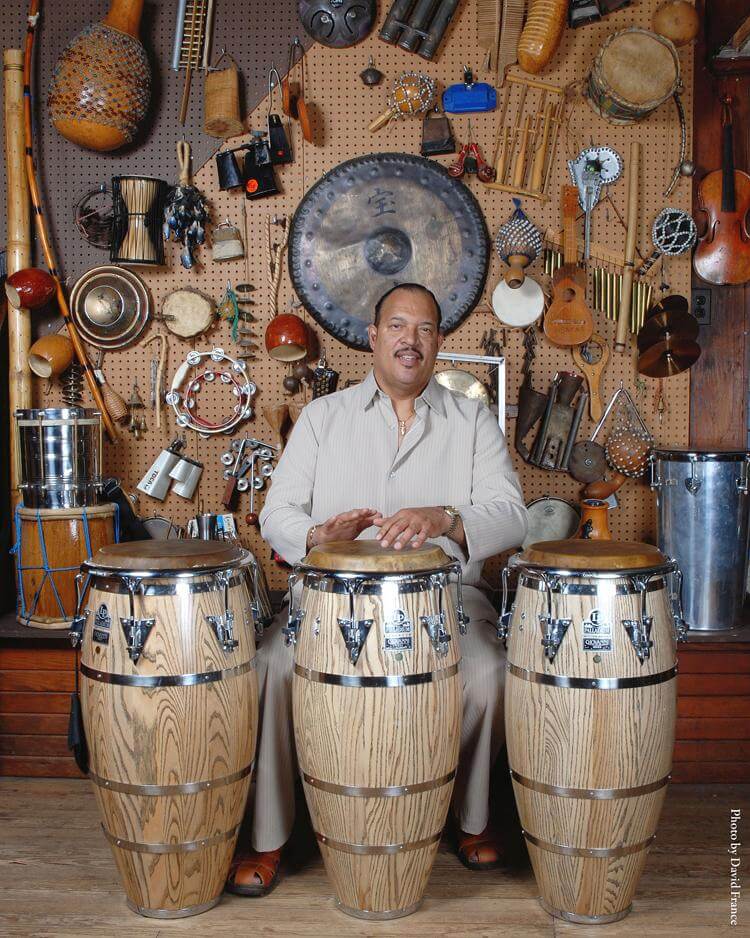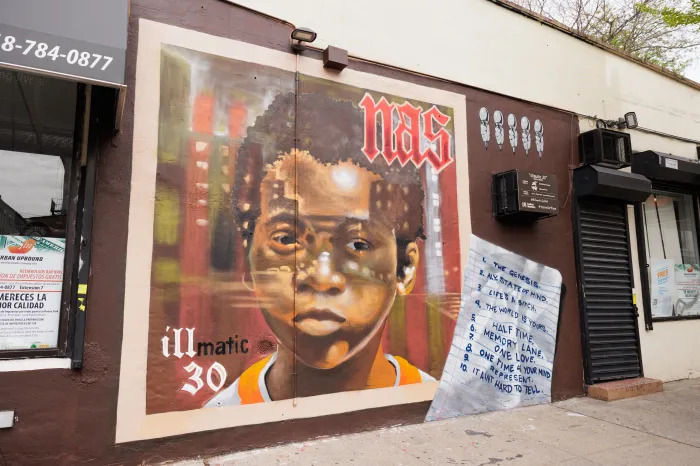By Morgan Rousseau
Longtime jazz and R&B aficionado and St. Albans resident Steven Kroon has a lifetime of music behind him. The roots that connect him to his Puerto Rican heritage are strong, and he is not afraid to show it in his music.
So when Kroon decided to veer off the path of a back-up percussionist and become a bandleader, he did so with no hesitation. Now, three solo albums later, the crooner has no intention but to keep on beating to the rhythm of his own drum.
His latest album, “El Mas Alla,” was released Tuesday. The title translates to “Beyond” in Spanish, and is a dedication to his father, a merchant seaman, who was a major inspiration for the musician.
Kroon said his father was a connoisseur of Latin jazz and owned an impressive collection of records that had a strong influence on him, including musicians like Tito Puente, Tito Rodriquez and Frank “Machito” Grillo, which Kroon inherited after he died. Reflecting on moving to Queens from Spanish Harlem with his family, Kroon said, “I came with all of my Latin roots, thanks to my father. I was fortunate in being able to hear the whole spectrum of music.”
But Kroon also considers the album a tribute to the greats of the Latin percussion world who have passed away. Considering that the idea of crossing over into death is typically a somber subject, it is surprising that the music is anything but. It is alive, upbeat and overflowing with a sensual Latin finesse that makes you want to move.
The first track, “Bobo's Blues,” sets the album's standard for high energy, jubilant Latin jazz. However, there is a range of eclecticism, as demonstrated by Kroon's “I Wish You Love.” The song, which is the only one on the album to incorporate vocals, takes the mood down a notch with a relaxing and reflective mix of tender lyrics and piano. The same can be said for “Steppin',” which falls somewhere between the freewheeling excitement of numbers like “Precious One” and the emotional tranquility of “I Wish You Love.” Regardless of the song, there is a common element that binds “El Mas Alla” into a coherent message to the younger Hispanic generation: Open your eyes to your roots, and different genres of music.
“What I find about this CD I've done, and people have also mentioned it to me, is that I've captured a little bit of the feeling of the old times of Harlem with Latin jazz. It has a nostalgic, old sound,” Kroon said.
Turning to how music has changed since the glory days of St. Albans, when jazz greats such as Count Basie, Ella Fitzgerald and John Coltrane called the neighborhood home, Kroon said that there are still quite a few fine musicians in the area, but that the music itself and the direction that it is taking have changed so much.
“Everyone used to listen to everything. Now they put it all on different sides of the radio. A lot of the young generation doesn't even know who we are,” Kroon said, referring to today's and yesterday's Latin jazz musicians. “I think they would like it, and I want to make it accessible to them,” Kroon said.
When Kroon moved to St. Albans from Spanish Harlem in 1956, the musical scene in the neighborhood was bustling with many well-known R&B and jazz musicians. Looking back to these years, Kroon said he considered himself an “enterprising young man,” which is why he took full advantage of the opportunity to mix and mingle with these artists he so admired.
Kroon and his older brother Robert networked by mowing lawns, selling magazine subscriptions and doing other odd jobs around the neighborhood. Eventually he and Robert got in close with musicians like the saxophonists Eddie “Lockjaw” Davis and Lester Young, as well as producer Henry Glover, who was managing James Brown, another St. Albans denizen, at the time. Soon he and Robert established themselves in the neighborhood by putting together their own singing group.
From the get-go Kroon wanted to make it big, and with his velvety pre-teen singing voice, the whole neighborhood was sure he'd make it far as a crooner — until puberty set in. Kroon laughs about how devastating it was when his voice changed, because it was so drastic and came as a shock to everyone.
However, there was a silver lining. His voice change led him to learn instruments, and by the age of 14 he was studying under his musical mentors. Kroon mastered Afro-Cuban percussion with Tommy López, Sr. and later Brazilian rhythms with Dom Um Romão. Of being self-taught, Kroon said, “It's a good thing and a bad thing … I wish I could have gotten a few lessons [in music school] here and there. Knowledge is a great thing. If you have it in your heart, something beautiful is going to come out.”
But self-teaching offered Kroon as much knowledge as he would need, because he went on to flourish in a lifelong career as a professional percussionist with the likes of Luther Vandross, Diana Krall, Aretha Franklin, Roberta Flack, The Temptations, Bill Cosby, Kenny G, Ron Carter, Spyro Gyra, Bette Midler, Gary Bartz and Paul Butterfield.
His musical career has taken him all over the world, to places such as Japan, Brazil and Europe, but his heart still takes him to Puerto Rico, where he has family and friends. In essence, it is this feeling of familial and cultural appreciation that is captured in his music. “I'm going for that good feeling,” Kroon said of his album.
“El Mas Alla” was released on Kroon's own Kroon-a-Tune Records label, and follows “Señor Kroon” (2004) and “In My Path” (2000). As for the future, Kroon said he's already working on songs for his next album. “This is what I want to do,” Kroon said. “I'm concentrating on my own group, my own band. That's what I see myself doing in the future.”
For more information on Steven Kroon, including clips from “El Mas Alla,” visit www.stevekroon.com.






























